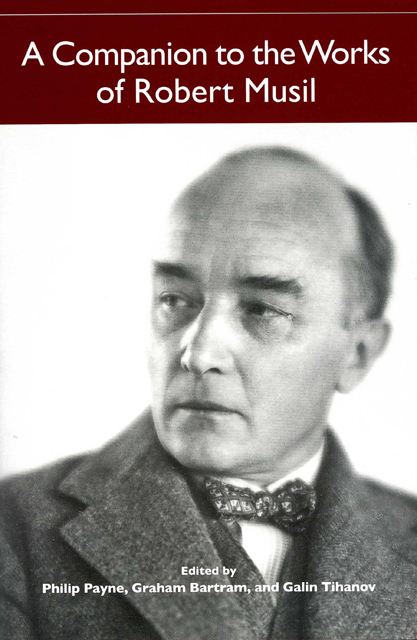Book contents
- Frontmatter
- Dedication
- Contents
- Preface
- Acknowledgments
- List of Abbreviations
- Musil's Principal Works
- Miscellaneous Frontmatter
- Introduction The Symbiosis of Robert Musil's Life and Works
- Musil's Life: Experiences, Reflections, Emotions of an Intellectual
- Literary Works before Der Mann ohne Eigenschaften
- Perspectives on Der Mann ohne Eigenschaften
- Select Bibliography
- Robert Musil's Life: A Chronology
- Notes on the Contributors
- Index
7 - Robert Musil's Novellas in the Collection Drei Frauen
Published online by Cambridge University Press: 15 March 2023
- Frontmatter
- Dedication
- Contents
- Preface
- Acknowledgments
- List of Abbreviations
- Musil's Principal Works
- Miscellaneous Frontmatter
- Introduction The Symbiosis of Robert Musil's Life and Works
- Musil's Life: Experiences, Reflections, Emotions of an Intellectual
- Literary Works before Der Mann ohne Eigenschaften
- Perspectives on Der Mann ohne Eigenschaften
- Select Bibliography
- Robert Musil's Life: A Chronology
- Notes on the Contributors
- Index
Summary
Drei Frauen (THREE WOMEN), the collection of novellas that appeared on 28 February 1924 in the Rowohlt Verlag in Berlin, brings together texts that had earlier appeared separately, namely “Grigia,” “Die Portugiesin” (The Portuguese Woman) and “Tonka.” With its love affairs and, in two of the three stories, its Romantic geographical settings, this book is probably the most immediately engaging of all Musil's works. However, within the three narratives Musil tries to come to terms with issues that are as problematical as those of Die Verwirrungen des Zöglings Törleß. To understand this we need to place Drei Frauen in the context of Musil's life before he began sustained work on Der Mann ohne Eigenschaften.
The Economics of a Literary Existence
In 1924, Franz Blei, who was among the first to support Musil and promote his works, published a little book entitled Das große Bestiarium der modernen Literatur (The Great Bestiary of Modern Literature). In it he pays tribute to 115 authors writing in German or whose works can be read in German; he assigns each of these to a particular animal species, represented by only this single specimen. In this work, between Münchhausen and Nietzsche, one finds the following description:
DER MUSIL. Der Musil ist ein edles, in schönen Proportionen kräftiggebautes Tier, an dem, da es zu der kleinen Familie der Damhirsche gehört, wo solches nicht Brauch, auffällt, dass es Winterschlaf hält. Der Musil schläft nach jedem reißend verlebten Jahre fünf Jahre lang in unzugänglichem Forst. Seine ungeheure Kraft der Muskeln nicht nur, sondern auch die hohe Sensibilität seines nervösen Lebens, welche der Musil in seinem wachen Jahre zeigt, scheinen auffallend langen Winterschlaf nötig zu machen.
[THE MUSIL. The Musil is a noble, well-proportioned and strongly built animal that is distinctive — since it belongs to the small family of fallow deer where such a feature is unusual — in that it hibernates. The Musil, after each year of hectic activity, sleeps for five years in impenetrable forest. It is not only the enormous power of its muscles but also the high sensibility of the life of its nerves, demonstrated in its year of wakefulness, that seem to engender the need for its strikingly long period of hibernation.]
- Type
- Chapter
- Information
- A Companion to the Works of Robert Musil , pp. 223 - 248Publisher: Boydell & BrewerPrint publication year: 2010



